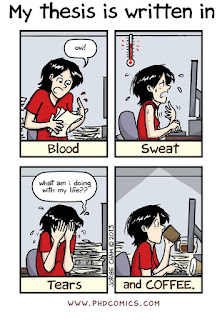2017 - the year that was...or wasn't in my case. After a few health challenges which turned out to be opportunities to clarify my thinking around my study (never miss an opportunity to try and turn a negative into a positive, or so I keep telling myself), I have decided to change my study path from an EdD, (Doctor of Education), to a PhD, (Doctor of Philosophy, Education).
WHY?
I have decided that I won't go back into the classroom as a teacher. I love a good challenge but being completely deaf in one ear is a little too much of one and I have a passion for research - always have - and this completely feeds that. It's something I've thought of doing, and wanted to do full-time, for many years now so this is the opportunity to do that.
Researching in a Different Way
While figuring all of this out, I've been working with my long-suffering supervisor at Otago, (he also put up with me for two Masters' papers). We started to talk about what form my research should take in terms of methods, theories and all the usual bits and pieces that go along with planning one of these journeys and we hit on something called Grounded Theory. I must admit this was a new one for me - had never heard of it before so this was my first bit of research before the research.
What on Earth is Grounded Theory and Why I Think it is Going to be so Powerful in Teacher Research
Grounded Theory is based on a constructivist approach to research (as a constructivist teacher, this already had me hooked!) where data is analysed throughout the research process rather than after it and this can lead to a change in direction for where the research leads. It also emphasises not making any assumptions and that the researcher tries very hard to leave their biases at the door, so to speak. This is a fantastic challenge for any researcher if they're prepared to take it on.
Grounded theory also has a strong aspect of ako integrated into the process where they researcher and the participants in the research process are learning from and with each other. If done well, it becomes a collaborative process. This also fits in well with my other passion - Communities of Practice - which were the focus for my Masters. (Note - Communities of Practice are not the same as Communities of Learning, but that is for another blog post...)
What is Classical Grounded Theory?
Biggest Opportunities and Challenges for My Research
- Keep an open mind
- Avoid preconceived ideas
- Always be open to new ideas and different opinions
- Try to avoid bias at any cost - the hardest part of Grounded Theory but the most important if we want to create new theories together with our participants in the research process
- Build a community of practice through trust, connections and collaboration
- Constantly interact with and question the data
Let the journey begin...again...



Thank you for your post, I'm excited to follow your journey as I start on mine too :-)
ReplyDeleteThanks Jo. Who are you studying through and what is your area of research?
Delete